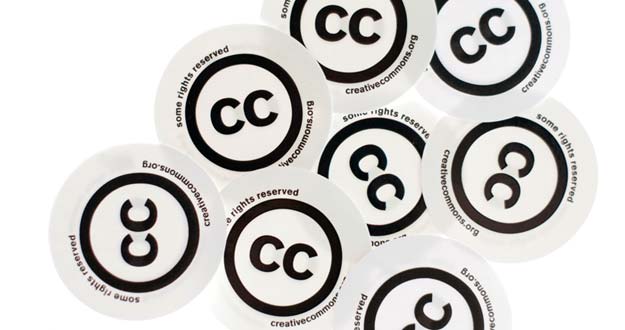This week, the Creative Commons (CC) License, which allows authors exercise of intellectual property rights, under the slogan of 'some rights reserved', has fulfilled twelve years.

Bottle caps with the logo of Creative Commons
It was a December 16, 2002, when the US organization, that manages it, launched this tool, while in Spain might be used, adapted and translated into Castilian, a couple of years later.
A feature of the Spanish-speaking world is that, each country as Mexico, Argentina or Uruguay, has its own license. As the spokesman CC CC Spain and Catalonia, Ignasi Labastida, told RTVE.es, they are working on a license only official version in Spanish, at the request of organizations like UNESCO.
"The goal is to use a common language and unify the terminology", said Labastida, who revealed they hope to have it ready, in early 2015, and thus facilitate its use.
At present, there are six Creative Commons licenses, that allow works can be "shared and reused on terms that are flexible and legal".
That is, any work of authorship, whether music, photos, books or databases, is protected. So has the feature that, depending on the type of license to use, other people can modify the work, reused for commercial purposes or not, etc. In addition, it must attribute the authorship increasingly used.
The latest version is 4.0 and it adds some details, regarding the above clarifying the intent of the authors, who use them, they improve its internationalization and cover more fields as information generated by governments or certain types of databases.
"The CC licenses are based on the system of Copyright, but they have different clauses that provide greater accessibility", said the researcher, at the Berkman Center, at Harvard University, Mayo Fuster, who thinks that these licenses facilitate creating environments that promote creativity.
"The authors may decide to give some uses of their works", agrees Labastida, who also works in the Office of disseminating knowledge of the University of Barcelona.
"We try to break the idea that everything on the Internet can be used freely. Know that all copyright if not specified, are" he explains, and recommends that the creators who want to share rights as specified with icons CC created for this purpose "so that people change their mentality".
Not only the individual creators or in group can use these free licenses, it also works for the government to adopt them.
According to Ignasi Labastida, are being "well received", in cases such as the City Hall of Barcelona and the Generalitat of Catalonia, which in its editorial licensing rules include open --there are other parts from the CC, as GPL license--.
"It was ideally open by default and close what has to close" sentence Labastida, who also works with the Europeana project. It is an open-access digital library, that includes works by all kinds of public cultural institutions of the EU.
Fuster, who said that these licenses "are widespread", criticizes, however, observing an "institutional repeated closure", in Spain, at the time of receiving "a widespread social practice" of these licenses. In this regard, he referred to the recently adopted reform of the Copyright Act, which does not include an explicit mention of free licenses.
This November, the Creative Commons released a report of the State of Procomún 2014. It shows that increased by 120% the number of works, with these licenses in the last four years, from 400 million, in 2010, to 882, in 2014.
The report notes that this growth may be due to "major websites that have incorporated these ideas", from nonprofit pages, like Wikipedia, to those of a commercial character, as Youtube, Flickr, or Scribd.
It also highlights the increasing use of the CC license, for academic publications, educational, or scientific nature. For example, the open access journal PLOS ONE already has more than 100,000 items, under this license.
One of the drivers of Creative Commons, the Lawyer and Scholar, Lawrence Lessig, has celebrated this anniversary with a message, on the blog project that speaks of a past uncertain, but "billion CC licensed work after", he thinks that they would track.
"The CC licenses are having a real impact on the lives of people. They are helping to disseminate information to treat diseases, to make government more transparent and accountable, and to make education accessible to everyone, in all parts. That is an incredible set of simple and free licenses impact”, Lessig has ruled.
Well, I am so glad for this news, because I did not know that how the "intellectual property" works and I find it very interesting, that unify criteria for the good result of the whole community of Spanish-speaking.
Untill my next post, kind regards,
Luis.
Sponsored by Costaluz Lawyers.
Please click below:
